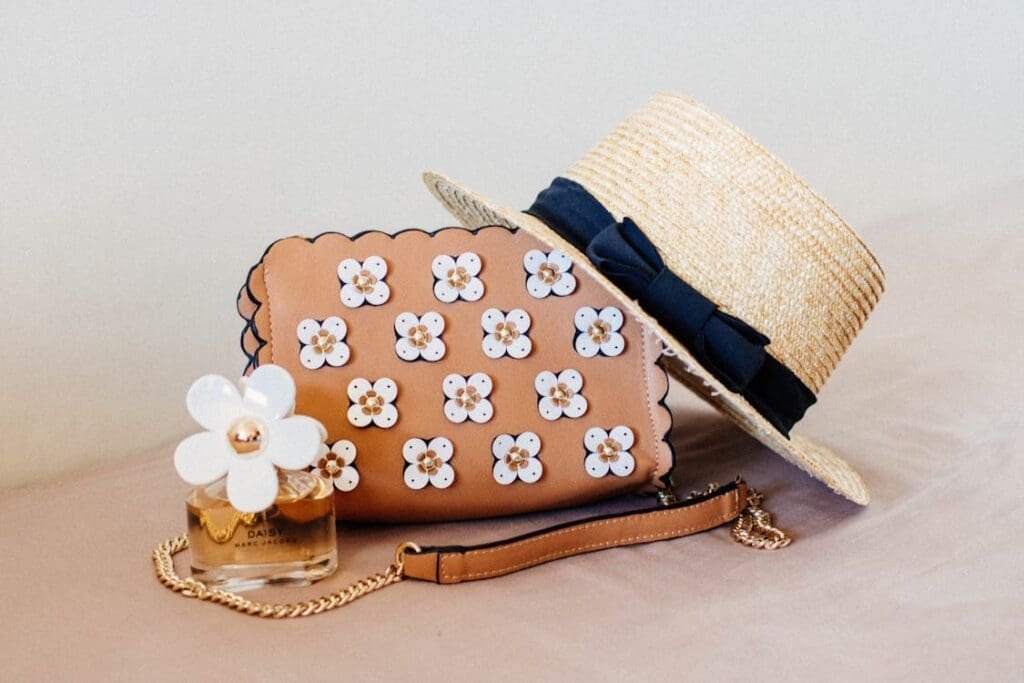Summary: With increasing consumer awareness, the future of fashion accessories is shifting from cheap, mass-produced trends to high-quality, ethical slow fashion solutions. Let’s take a deep dive into the fast and slow fashion accessories industry.
Wanting to express yourself is a human need and fashion serves as one of the most powerful means for it. Believe it or not, your choice of clothing and accessories can tell a lot about you. Do you like classic pieces? You’re likely someone who prioritises reliability and quality over what’s hot. Prefer bold and trendy styles? You’re adventurous with your look and love changing it up whenever the mood strikes.

Fashion, particularly accessories, is a reflection of your individuality, way of life, and the values you hold dear. However, in recent years, the production and consumption of these accessories have become major topics of discussion, giving rise to an ongoing debate between slow and fast fashion. This post explores both sides, shedding light on the reality of fast-fashion and slow-fashion accessories and how they will shape the future of fashion. Let’s dive in!
What Are Fast Fashion Accessories?
Try as you might, you simply cannot avoid fast fashion trends in today’s world. Brands are constantly pushing it to the forefront in partnership with influencers who proudly show off their latest hauls. You must’ve spent a fair amount of time yourself bingeing fast-fashion haul videos. They’re addictive, engrossing, and incredibly effective at creating FOMO (fear of missing out).
Fast fashion is all about bringing the latest trends from the catwalks to you in the fastest and cheapest way possible. It’s hard to resist the temptation when you can buy a whole stack of jewellery or several new hats for less than the price of a single coffee. But how are these accessories so cheap? The answer is exploitation. If you’re not paying the price, it’s the workers, animals, and the planet that are. Fast fashion is a highly unsustainable and unethical business model that thrives on mass production, underpricing, and over-consumption.
Environmental and Ethical Concerns
Fast fashion accessories are undoubtedly easy on the pockets but you’re paying for it in other ways. Many of these accessories are proven to contain toxic heavy metals such as lead which can have adverse effects on your health.
Most of them are made from cheap materials and are only good for a few uses before either the trend dies out or they start falling apart, and you have to discard them. These products end up in massive landfills, polluting the earth for centuries to come as they’re non-recyclable. Fast fashion’s impact on numbers is quite staggering. The industry produced 2.31 billion tons of greenhouse emissions in 2018 alone and accounts for 10% of the global carbon footprint.
Fast fashion accessory brands rely on exploiting their workers to keep the prices low. So, before you purchase that $1.5 hat, remember that it was likely made by a labourer from a third-world country who was forced to work in unsafe conditions for an abysmally low wage.
Why Slow Fashion Is Better
As the name suggests, slow fashion accessories, such as handmade inspirational jewellery, are produced slowly. This is simply because the focus is on quality over quantity, unlike fast fashion with its high turnover rate. While you may not get the hottest trends on the streets quite as fast with slow fashion, you would be getting high-quality accessories that have been produced responsibly. This involves using sustainable and conflict-free materials a.k.a. “circular fashion,” ethical treatment of workers, and careful manufacturing.
Slow fashion accessories are designed for the long haul, meaning they won’t become outdated the next season. If you’re a business owner looking for wholesale boutique ideas, slow fashion accessories are an opportunity to stand out. Once people shop from you, they’re guaranteed to come back because of how well-crafted the accessories are.
What Consumers Want and the Future
Awareness is the first step to creating meaningful change. While there doesn’t seem to be an end to fast fashion accessories anytime soon, we’re now more informed than ever about the dark reality behind those cheap accessories. The sustainable fashion industry, including slow fashion brands and thrift shopping, has seen an uptick in popularity in recent years.
According to sustainable fashion statistics, 38% of consumers want fashion brands to reduce their environmental impact whereas 55% of consumers have shown interest in shopping sustainable. Millennials buy more sustainable fashion whereas Gen Z thrifts more. This shows that consumers are willing to invest in quality, ethically produced accessories they know will last rather than cheap, disposable products that harm communities, the environment, and animals.
As consumers, the future of fashion is in our hands. Fast fashion brands now are under higher scrutiny than ever to reduce their carbon footprint and treat their workers fairly. By putting them under greater pressure to adopt sustainable practices and making conscious shopping decisions ourselves, we can influence the future of fashion.

